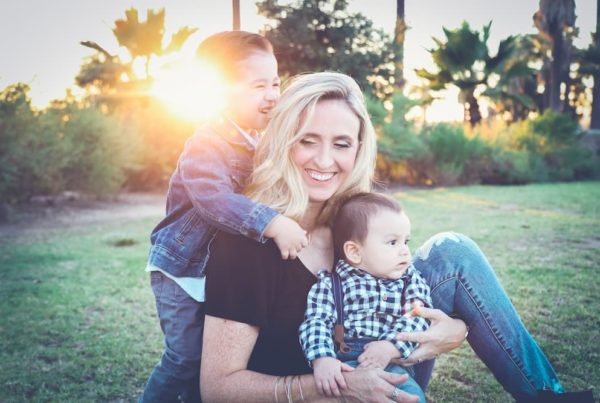Domestic abuse is on the rise in Ireland. As illustrated by Women’s Aid’s Annual Impact Report for 2022, one in four women has been subjected to domestic abuse at some point. Last year, 31,229 contacts were made with Women’s Aid regional and national support services. This is a 16% increase compared to the previous year. More alarmingly, it’s the highest number of contacts ever recorded by the charity.
Men’s Aid Annual Report 2022 registered a staggering 26% increase in contacts compared to 2021. Sadly, these numbers likely only represent a fraction of those suffering domestic abuse, with the majority going unreported.
Paid Leave in Ireland
Paid leave refers to any authorised absence from work. During your absence, you’ll continue to be paid your full or partial salary. The most common type of paid leave is annual leave, although others exist.
Every employee in Ireland is entitled to annual leave. This includes full-time and part-time workers, as well as temporary and casual employees. As set out in the Organisation of Working Time Act of 1997, workers are entitled to 4 weeks of paid annual leave each year.
Other types of paid leave include maternity leave, with benefits paid for 26 weeks, and adoptive leave, with benefits paid for 24 weeks. Paternity leave is paid for 2 weeks, while parent’s leave is paid for 2 weeks. In November 2023, paid domestic violence leave was introduced.
Is Domestic Violence Leave Paid?
Conviction rates in domestic violence cases are notoriously low. During 2019 and 2020, a mere 20% of those accused were convicted in Dublin courts. Nonetheless, the incidence of domestic violence remains at an all-time high.
In November 2023, the Irish Government finally introduced the right to domestic violence paid leave. Forming part of the Work-Life Balance and Miscellaneous Provisions Act 2023, this initiative will allow employees suffering domestic abuse up to 5 days of paid leave from work.
This leave allowance is intended to give victims of abuse the chance to seek out support from victim services, request a court-issued safety order, relocate, or do anything else to improve their situation.
Who’s Eligible for Paid Domestic Violence Leave?

Anyone who is currently experiencing domestic abuse or has previously suffered at the hands of a domestic abuser is entitled to domestic violence leave. Recognised forms of domestic abuse include the threat of violence or actual bodily harm, emotional abuse, sexual abuse, economic abuse, and coercive control.
You’re eligible for paid domestic leave allowance if the abuser is your current or former spouse or partner, or a child aged over 18 who is not financially dependent on you. You can also claim paid leave if you need to support someone else suffering from domestic abuse, referred to in this case as a ‘relevant person’.
Domestic violence paid leave doesn’t have to be taken on consecutive days. If required, you can take several single days of paid leave from work. However, bear in mind that partial absences will still count as a full day of your paid leave allowance.
Part-time workers have just as much right to domestic violence leave as full-time ones. However, paid leave allowances will be worked out on a pro-rata basis.
Is Domestic Violence Leave Paid?
This statutory entitlement is fully paid, with your 5 days of paid leave renewing every 12 months. You should receive your full rate of pay during your leave, with your employer responsible for this. If there is little consistency in your working schedule, your employer will take an average of the 13 weeks before your leave to calculate how much to pay you.
There should be no mention of domestic abuse paid leave on your payslip, with the strictest confidentiality always maintained.
Other Information You Should Know
- Managers play a critical role in supporting employees who may be experiencing domestic abuse. If concerns arise regarding an employee’s well-being, managers should create a safe and private environment for the employee to disclose their situation, if they choose to do so. They should also refer the employee to a designated contact person trained in handling domestic abuse disclosures and facilitate access to available support, including external services. Confidentiality must always be upheld, and any shared information should be strictly on a need-to-know basis.
- Employers may consider providing financial support to employees affected by domestic abuse. This could include salary advances to assist with urgent financial needs or flexible payment arrangements to protect employees from financial coercion by an abuser. Offering these measures can provide essential financial stability for those in vulnerable situations.
- To ensure a supportive workplace employers are encouraged to implement training and awareness programs on domestic abuse. Training in relation to domestic violence will include how to recognise, respond to and refer domestic abuse cases to specialist organisations if required.
- While you’re not required to give your employer any notice, it’s recommended that you do. Employers may also decide to give you more than 5 days of paid leave, but this remains at their discretion.
- You don’t have to provide any evidence when requesting paid domestic violence leave. If there is a dispute regarding your leave, first raise the issue formally with your employer. If that fails, you may want to escalate the issue to the Workplace Relations Commission (WRC).
A Lifeline for Domestic Abuse Sufferers
Domestic abuse is largely a hidden issue. However, the significant rise in reported cases over the past few years is an obvious sign that the issue is far worse than originally thought.
For those trapped in a coercive relationship or still suffering at the hands of an abusive spouse, paid domestic abuse leave is long overdue. Allowing victims to seek out support or decide to escape from their abuser could even prove the difference between life and death in extreme cases. It’s yet to be seen what impact the measures will have on domestic abuse statistics in Ireland, but they’re certainly a step in the right direction.
For More Information, Contact Us
Understanding the rules around leave for victims of domestic violence can be quite confusing. This is when an experienced Senior HR consultant can help. The HR Suite specialises in simplifying HR processes — and we have the insights you need. We can also assist in training in-house personnel, and assist in people management.
Our top-notch HR outsourcing services support your in-house teams, and our expert employment law consultants are there to guide your business, when it comes to leave for victims of domestic violence.


![Paid Leave for Victims of Domestic Abuse [Updated 2025]](https://thehrsuite.com/wp-content/webpc-passthru.php?src=https://thehrsuite.com/wp-content/uploads/2023/12/shutterstock_1727477494.jpg&nocache=1)




